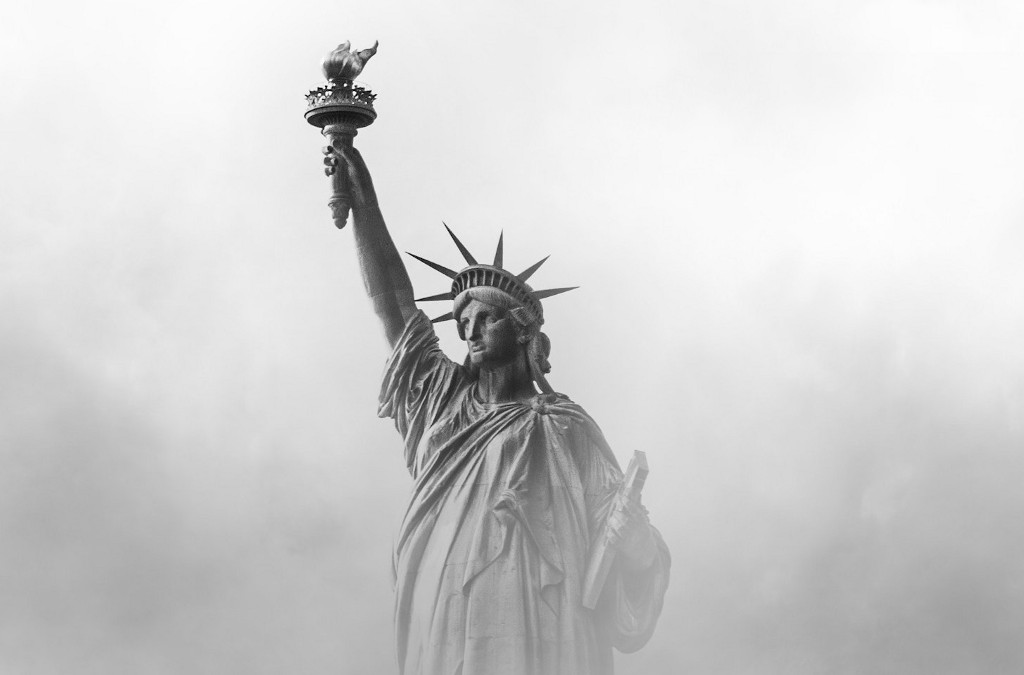With Dennis Price
It will be a welcome relief if The Economist’s second impact investment gathering in New York this week goes beyond high-minded conversation to actually mobilize the super-empowered guest list for concerted action.
Impact investors have cheered The Economist’s interest as a British-accented signal that the new investment approach is ready for prime time. Thursday’s speakers, including James Lee Sorenson of the Sorenson Impact Foundation, Debra Schwartz of the MacArthur Foundation, Jean Case of the Case Foundation and Audrey Choi of Morgan Stanley all are eager to move beyond the question of whether to move capital markets toward social impact, and get to how and how fast.
Take one of the key questions on the agenda: Can investors revive the American dream? As it happens, ImpactAlpha’s New Revivalists series is highlighting “people, places and policies reviving entrepreneurship — and the American Dream.” Among the takeaways: the need for startup debt — not just equity — capital; temporary retail or manufacturing space to help founders launch quickly; an emphasis on operating revenues, rather than the next round of fundraising; and investors who look like, and can spot, underrepresented and underestimated founders.
“We actually know quite a bit about how to support more diverse startup founders,” says Ross Baird, founder of Village Capital, which is working with ImpactAlpha on the New Revivalists series. “It’s really hard, with no shortcuts.”
Derrick Braziel: Breaking down barriers for Cincinnati’s entrepreneurs of color
In Cincinnati, for example, New Revivalist Derrick Braziel noticed that the people moving into vacant storefronts in the city’s Over-the-Rhine neighborhood “didn’t look anything like the local community that had lived there.” He co-founded Mortar to connect local entrepreneurs to small loans, pop-up spaces and technical assistance. In West Virginia’s coal country, Brandon Dennison’s Coalfield Develoment Corp. has spun off job-creating businesses in solar installation, sustainable agriculture and green construction.
One entrepreneur at the Economist’s event, Frederick Hutson, the founder of Pigeonly, might have been one of those underestimated founders. He got his idea for cutting the high cost of communications with inmates while serving his own four-year federal prison sentence for selling marijuana. Pigeonly enables families to make telephone calls and send photos, letters and greeting cards to those who are incarcerated. “Everything’s starting to gel,” Hutson says in a video on Vice. “It took us awhile to get here, but I’m really happy about that.”
“I believe the American Dream is still very much alive, and investors can help make it more accessible by allocating capital responsibly,” says private equity investor Andy Unanue, a speaker at the Economist event. Unanue’s AUA Private Equity Partners, which invests in companies growing with the Hispanic market, has $275 million in assets under management. “We believe that by increasing compensation to provide a livable wage, along with enhancing employee benefits, we can create more productive and healthier workforces,” he says.
Brandon Dennison: Transforming coal country, one social enterprise at a time
Another speaker, Kesha Cash, founder of the $10 million Impact America Fund, which has invested alongside Andreessen-Horowitz (in Mayvenn), is expected to make the case for the opportunities for tech startups to serve the needs of low-income U.S. communities. Michael Schlein of Accion, the nonprofit microfinance organization headquartered in New York, will talk about the unfilled niche in micro- and small business lending in the US. Accion makes loans of between $200 and $300,000 from 30 offices around the country, the largest such network in the country.
Village Capital’s Baird has argued that biases in traditional venture capital investing cause investors to miss opportunities in cities and states far from the coastal hubs, and to overlook minority and women founders who are not already plugged into their networks. “Overcoming our own biases requires intentional design, resources, and hard work,” says Baird.
New Revivalist Arlan Hamilton, for example, founded the venture capital firm Backstage Capital to invest in high-potential entrepreneurs who are of color, women and/or LGBT — Hamilton identifies as all three. “If the problem is that people are pattern-matching, that means there should be more people like me writing checks,” Hamilton says.
Arlan Hamilton: The VC taking cold calls from underestimated entrepreneurs
Bryce Roberts and Tim O’Reilly use an aproach they’ve dubbed “indie.vc” to offer founders an alternative to mega-funding rounds. “We have to refocus the entrepreneur on something that has been lost on so many Silicon Valley businesses: you are trying to build an operating business,” O’Reilly says.
The unifying theme may be that looking for deals where others don’t yields new opportunities. Of the 16 companies Roberts and O’Reilly have funded, more than half are led by female founders. At the conference, Jean Case and Liesel Pritzker Simmons are expected to argue that using a gender lens can boost investment returns by surfacing new talent, customers and markets.
Zoe Schlag, the head of Techstars Impact, is expected to describe how the global seed stage accelerator set up shop in Austin, Texas, not Palo Alto, to find tech startups using social innovation to solve global challenges. Such impact startups need impact investors.
“If you’re an entrepreneur and you’re really mission-driven and you have a specific purpose you’re building the company for, and you take money and you’re not aligned at that level, that’s a serious detriment,” says Ev Williams, a founder of Twitter and Medium and now a co-founder of Obvious Ventures, a “world positive” VC firm. “If you’re both optimizing for the best business performance and the most positive change, then you can create a real partnership.”
The New Revivalists: The people, places and policies reviving entrepreneurship — and the American…











